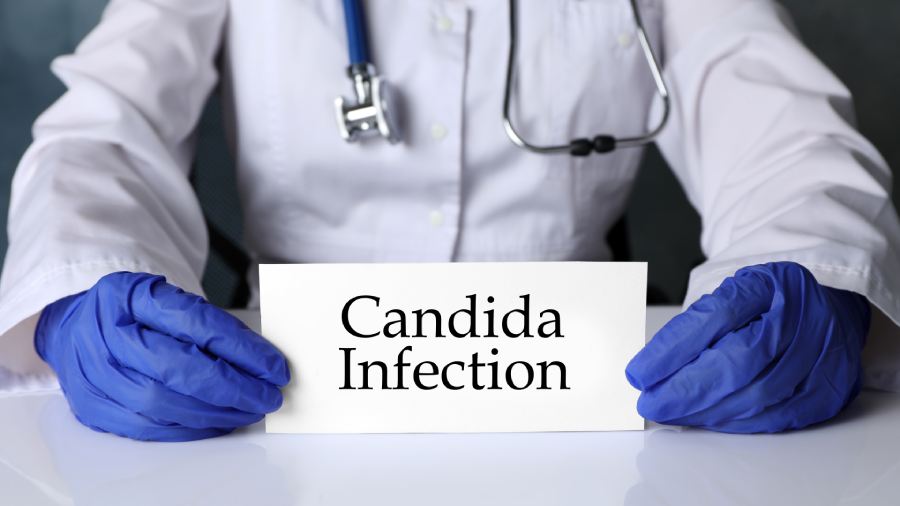Fungal spores are all aroundus — in the air, on our bodiesand in exposed parts of ourmucous membranes. Healthybacteria living in these areasact as a defending army and usuallymanage to keep these marauders atbay. But unfortunately, defences canbe overcome and fungi can gain afoothold. The most common fungi arethose belonging to the Candida family. They produce an infection called can-didiasis or thrush.
Babies, people with diabetes,cancer patients, those taking steroids,tobacco users (smoked or chewed),people with poorly fitted dentures andpersons with HIV are particularly vulnerable. Inhaled ster-oids are prescribed for airway diseasewith wheezing.Patients may place the inhalers direct-ly in their mouths without using aspacer. A fine mistcontaining steroidscan get deposited in themouth, causing thrush. Antibioticskill good protective bacteria and bad disease-causing bacteria indiscrimi-nately. This, too, can result in an over-growth of candida.
In the mouth, candida causes redness, white patches that look like bits of curd, soreness (cheilosis) in the corners of the mouth, and loss of appetite and taste. Babies may become irritable and refuse to feed. If the infection extends down to the oesophagus, it can cause chest pain and difficulty in swallowing.
In women, vaginal candidiasis can cause itching, irritation and white discharge. Men can develop an itchy rash, red skin, swelling, irritation around the head of the penis and pain when urinating.
Babies are more likely to develop thrush if they are bottle-fed or use pacifiers. They can transmit the infection to the mother while breastfeeding. The mother develops sore nipples, itching and redness around the areola. Both mother and child need to be treated simultaneously; otherwise, they will pass the infection back and forth.
Visualisation of the suspected candida infection is enough to make a diagnosis. For confirmation, the lesions can be scraped and examined under a microscope. If candida of the oesophagus is suspected, an endoscopy and a biopsy may be needed. Blood tests need to be done to rule out diabetes or immunocompromised status.
Candida responds rapidly to treatment. Usually, anti-fungal topical creams, pessaries or liquids are all that is required. Treatment may have to be continued for 10-14 days. Recurrences can occur, especially if the underlying condition like diabetes is not treated or controlled. Recurrences are also common in post-menopausal women. Pre-menopausal women are likely to develop infections during pregnancy and lactation. Infection can also be precipitated and aggravated by hormone therapy and oral contraceptive pills.
Teeth should be brushed twice a day. Dentures must be cleaned as per the dentist’s instructions. Anti-bacterial mouthwashes should not be used more than twice a day as they upset the natural antimicrobial balance of the mouth. A dental check-up should be done at least once a year. Cavities and sharp teeth causing injuries should be promptly treated.
Inhalers should not be shared; they should be used with a spacer which is cleaned regularly. After using the inhaler, gargle and rinse out the mouth with a salt solution.
Single-dose therapy with fluconazole is usually very effective. For candida infection in the deep tissues like the oesophagus or in immunocompromised individuals, itraconazole or injectable antifungal agents may be needed. Recurrences can happen, especially if the underlying precipitating condition like diabetes is not treated or properly controlled. Recurrences are also common in post-menopausal women as their vaginal lining is thinned out and easily infected. Pre-menopausal women are likely to develop infections during pregnancy and lactation due to hormonal imbalances. Infection can also be precipitated and aggravated by hormone therapy and oral contraceptive pills.
The writer has a family practice at Vellore and is the author of Staying Healthy in Modern India. If you have any questions on health issues please write to yourhealthgm@yahoo.co.in











